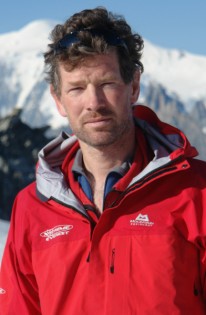

Dr Mike Grocott is a consultant in Critical Care Medicine at Southampton University Hospitals NHS Trust and Smith's Senior Lecturer in Critical Care Medicine at the UCL Institute of Child Health, London.
He is Director of the Surgical Outcomes Research Centre (SOuRCe) at the UCLH/UCL Joint Comprehensive Biomedical Research Centre and has recently been appointed Director of the Royal College of Anaesthetists Health Services Research Centre. Dr Grocott co-founded and is the Director of the UCL Centre for Altitude Space and Extreme Environment Medicine (CASE), Director of Caudwell Xtreme-Everest (www.xtreme-everest.co.uk) and is an honorary Senior Lecturer in high-altitude physiology at UCL.
His research interests include human responses to hypoxia, measuring and improving outcome following surgery and fluid therapy. He is co-chair of the KnO2wledge series of meetings and of the National Perioperative CPET meeting.
Dr Grocott has completed 11 high altitude expeditions to the Himalaya and South American Andes (6 as leader) and has extensive experience in expedition medicine and co-ordinating high altitude medical research projects. He was Resident Physician at the Himalyan Rescue Association aid post in Pheriche, Khumbu, Nepal (September - December 2004).
Dr Grocott is the recipient of numerous awards and prizes, including: Pinkerton Medal, Association of Anaesthetists of Great Britain and Ireland (2008), Royal Institution Friday Evening Discourse (2008), BOC Inspire Award (2006), Silver Medal of the Danish Surgical Society (2005), Abstract Winner, National Institute of Clinical Excellence Conference (2002), St George’s Hospital Medical School Laurels (1992), Elek Prize in Clinical Immunology (1991), William Brown and Devitt-Pendlebury Exhibition (1988).
About this lecture:
Caudwell Xtreme Everest (CXE) is a large, healthy volunteer field study investigating human adaptation to environmental hypoxia. CXE is a project of the Centre for Altitude Space and Extreme Environment Medicine (CASE Medicine) at University College London. The aim of CASE Medicine is to investigate variability in human adaptation to low oxygen levels (hypoxia) in order to improve understanding of how critically ill patients deal with hypoxia. During April and May 2007 more than 200 individuals were studied as they were progressively exposed to hypobaric hypoxia on the trek to Everest Base Camp at 5,300m. Most of these individuals were volunteers who gave up their holidays to be participants in the study. The remainder was comprised of doctors and scientists, 15 of whom continued the studies as they ascended up to 8,000m. Eight of these investigators reached the summit of Everest and on their descent took the first measurement of arterial oxygen levels above 8,000m. A series of complex physiological measurements were taken in London before departure, in four laboratories in Nepal on the ascent to Everest Base Camp, and in two laboratories high on Mount Everest. The next few years will see whether this new approach to investigating the pathogenesis of critical illness bears fruit.